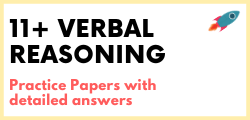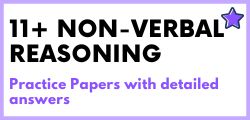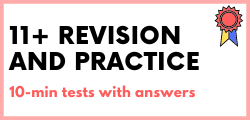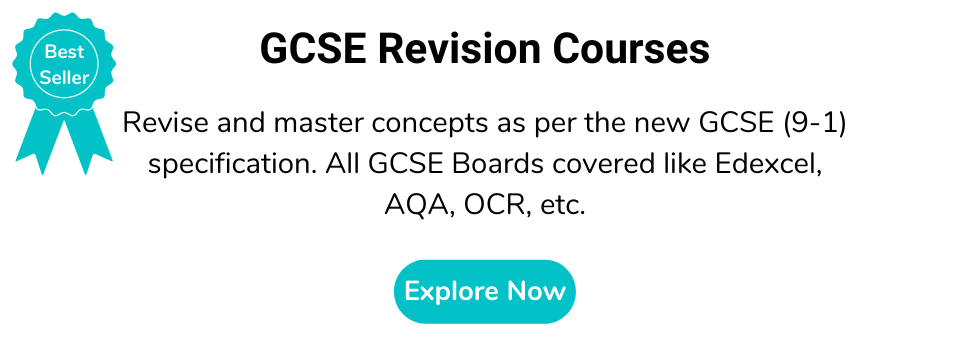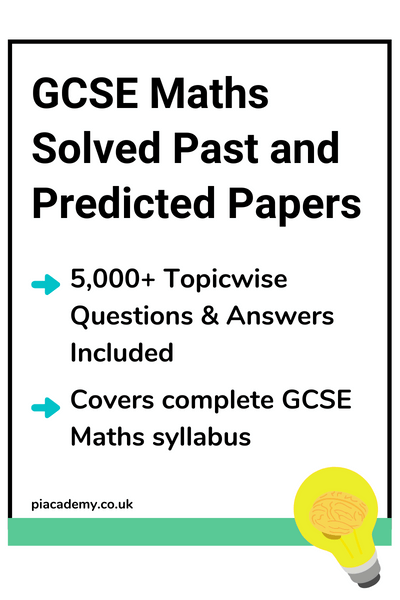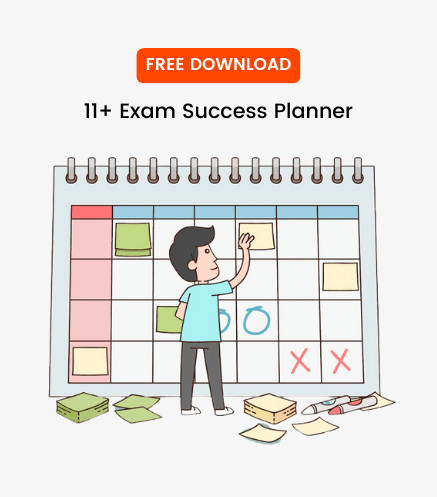What is GCSE?
GCSE is part of the National Curriculum taught to pupils aged 14 to 16 in years 10 and 11. It also includes exams, the results of which have a significant bearing on a child’s future career.
GCSE - four letters that strike fear into the hearts of teenagers all over the country! But what exactly are GCSEs? Well, in a nutshell, GCSEs are the exams children have to take at the end of Key Stage 4.
Table of contents
- What is GCSE?
- What is Key Stage 4 (KS4)?
- What does GCSE stand for?
- Which subjects are compulsory in GCSEs?
- How important are GCSEs?
- How long is a GCSE course?
- Which GCSE subjects include coursework as part of the final grade?
- Preparing for GCSEs
What is Key Stage 4 (KS4)?
Education is divided into 4 key stages. The last of these, Key Stage 4 (KS4), is taught to children in Years 10 and 11 at secondary school, when they are 14 to 16 years old. The courses studied in KS4 are GCSE and the all-important GCSE exams are held at the end of Year 11.
What does GCSE stand for?
The initials GCSE stand for General Certificate of Secondary Education. It’s a replacement for the old O (Ordinary) Levels and CSEs (Certificate of Secondary Education) many of us had to take when we were children, long, long ago. GCSEs were first taught in 1986 and the first GCSE exams took place in 1988.
Which subjects are compulsory in GCSEs?
There is some freedom regarding which subjects are studied at GCSEs 2023. Three core subjects, English, Maths and Science, are compulsory along with citizenship and PE (although there are no exams in the latter two). All other subjects taken at GCSE are optional.
Optional subjects for KS4 vary between schools. Some subjects may be restricted and others (particular languages, like German for example) may not be offered at all.
How many GCSEs must children take?
Each school determines the number of GCSEs its pupils can take, which could be as many as 12 or as few as 7. Aside from the obligatory maths, science and English, pupils select their remaining GCSE options in Year 9. What they choose will have bearings on their future so encourage your child to pick subjects needed for any chosen career as well as ones that interest them and ones they are good at.
English, Maths and Science are subjects that children must take at GCSE level.
Not all GSCEs are assessed in the same way:
- art and design, for example, have more coursework and fewer exams
- some GCSE courses are made up of units where you take exams at the end of each unit
- other GCSEs involve exams at the end of course.
How important are GCSEs?
GCSEs are the most important exams students take before college or university. The results have a huge effect on pupils’ futures. Many college courses require a minimum of 5 GCSEs at grade 4 or above (C or more in the old grading system) and some demand five grade 6s (A or A*).
Some college courses only accept students with grade 6 or more (A or A*) in that subject for GCSE and universities often require a minimum of grade 4 (C or above) in English, Maths and at least one Science before they will accept you for any course.
How well students do in their GCSEs is the only real indication colleges have of potential students’ abilities. So, with further education and career in mind, GCSEs may well be the most important exams of all.
How long is a GCSE course?
GCSE exams come after two-year courses of study during which pupils will be taught everything they need to know for their exams. And it’s not all necessarily about exams - in many subjects, students’ coursework is assessed as part of their GCSE results.
Which GCSE subjects include coursework as part of the final grade?
In practical subjects, like art, design and technology, or music, 60% of a student’s GCSE grade will be marked on their coursework. The English Literature result is also partly assessed with 40% of the final mark being based on work done in class or at home.
GCSEs are important exams and vital for those wishing to go into further education.
Preparing for GCSEs
Setting goals is a great place to start, as this will set the tone for the next few months. Start by writing down the GCSE subjects you’re studying for and the grades you want to achieve. Underneath each subject, write out the list of topics you’ll need to understand as well as question formats, techniques and the marking criteria the examiner will be using in the grade band you’re aiming for. Doing this will mean you can plan out your study sessions effectively and keep track of the progress you’re making.
Building a revision timetable will add structure to your studying and allows you to organise your time in the way that best suits you and your schedule. As you will be mapping out study slots for each topic, if you identify a GCSE subject that you want to spend more time on, you can add these extra sessions in.
It’s also important to create a realistic schedule and know there are limits to how much work can effectively be completed in a day. Balancing leisure and revision equally means you’ll be much more productive and motivated in the long run and be able to revise more effectively.
Just plan your study time out depending on what works best for you - so if this is 5 out of 7 days a week, or 7 days a week but an hour per day, that’s okay- everyone will be slightly different!
There isn’t a one size fits all way to study as everyone works in different ways. Understanding your learning style and whether you’re a visual, auditory or kinaesthetic learner will make revision so much easier!
Once you know the method of learning that suits you best, simply tailor each study session by choosing more effective revision techniques that will make remembering and recalling information much easier.
Taking regular study breaks is so important when it comes to GCSE revision. Studying for long periods of time can be counterproductive as the brain becomes tired and you can easily lose focus, meaning you’re not actually revising effectively.
Instead aim for 30-45 minute sessions with short breaks in between and ideally no more than 4 hours of study per day. This way you’ll have much more productive bursts of revision rather than trying to stay alert covering multiple subjects for hours on end.
One of the best revision tips to help you prepare for your GCSE exams is to do as many practice papers as you can. They will help you become familiar with the exam format, question style and time restraints, so when it comes to the real thing you’ll already know what to expect.
Completing old exam papers is also a good way to test your current knowledge and help you identify any areas you’re struggling with. Ask your teachers for a few years’ worth of papers and schedule one or two a week into your revision timetable.
If you’re finding revision too much to tackle on your own, then working in a study group is a great way to find support. Collaborate with your classmates and create an after-school study club or join a GCSE revision group online.
Not only will it enrich your learning as you can explore the thoughts and ideas of others, it will also help you improve your communication and collaboration skills. You can quiz each other, share notes, discover new ways of memorising things and explain topics in new ways to each other that may be easier to remember. Sharing knowledge is powerful!
Mixing up your study habits is a great way to stay motivated, inspired and keep your brain alert and active while revising for your GCSEs. Try alternative methods such as listening to a podcast, watching videos or documentaries, working in a group, creating revision posters, moving to a new study area or using different coloured paper for each set of revision notes.









